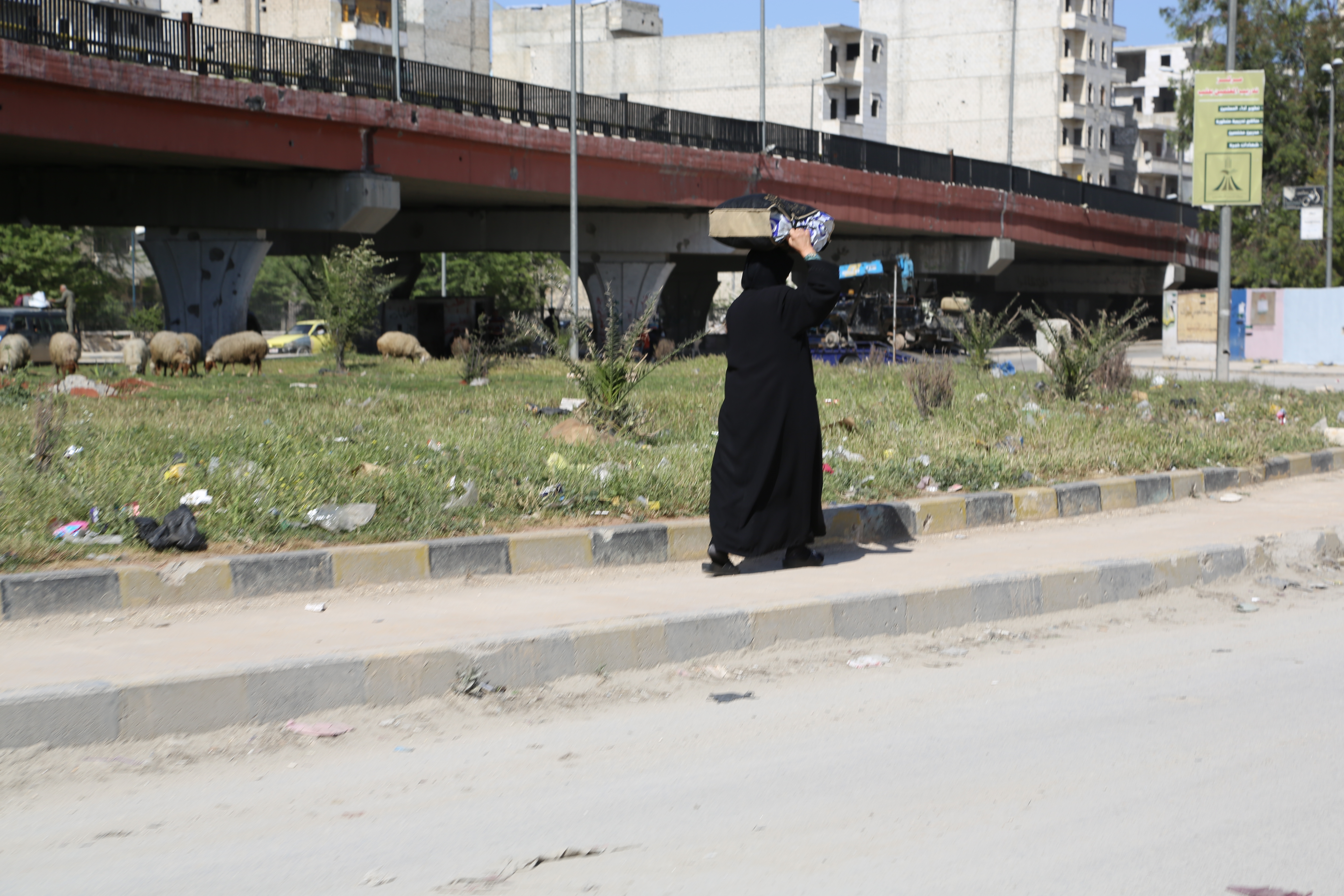Surviving Execution

My family and I became displaced on the dawn of June 13, 2012. We were forced to abandon our home in Douma, along with most of our neighbours, due to the constant stream of shells and bullets targeting the area.
We moved to a village called ad-Damir where my husband had some friends. They helped us find a house to rent, and we stocked up on food and supplies.
Once we had settled in, my husband resumed the work he was doing for the opposition, which consisted of collecting and delivering donations. He secured some funds from friends who worked as traders, and headed back to Douma to deliver them.

He never made it there. His journey was unexpectedly cut short at a recently-created government checkpoint. The soldiers manning the checkpoint asked him to pull over and step out of his car with his hands behind his head.
Terrified and pale, my husband did as he was told.
The men searched him and his car, and found the donations he had collected in the trunk. The money aroused their suspicion as it was in US dollars, and they questioned him about it.
He told them it was donations collected for humanitarian purposes. They confiscated his car, blindfolded him, and took him away. He was missing for a whole month.
I prayed for his safe return every day, and when his cousin finally brought me news of his whereabouts, I fainted. He was in hospital, but he was alive and asking to see his family.
When we walked into my husband’s hospital ward, his face was so bruised and battered that our youngest son backed away in fear. I found it hard to hold back my bittersweet tears.
My husband told us his story. When he was arrested, he was taken to a local security service headquarters. There, he was repeatedly beaten and tortured. Someone extinguished a cigarette in his left eye, and most of his ribs were punched until they fractured.
A month later, on Thursday July 17, 2012, he was taken to a secluded area to be executed. He was placed in a small room in a building by the roadside, where he recited his final “shahada” prayer – “There is only one God and Mohammad is His messenger.”
He was shot once in the head, but by God’s grace, the bullet merely grazed his temple.
Bleeding, my husband shouted out: “Allahu Akbar!”
His executioner screamed back, “Where is God to save you, you low-life?” this time aiming at his chest.
My husband fainted when the bullet hit him. His executioner took him for dead and left.
Hours later, he regained consciousness and managed to crawl out of a window into the street. Many people walked past him. Although it was clear he had been tortured, only one person dared approach and assist him. This good-hearted man – God bless him – took my husband to a hospital in our home town Douma.
My husband lost his vision in one eye, and had 16 centimetres of his intestines removed, but he survived.
Six months later, he rejoined the opposition, this time as a combatant.
At some point, he was promoted to a commanding position, and along with the free men of his town, he managed to liberate the security service headquarters where he had once been held captive.
He captured the criminals who had run it and sent his would-be executioners off to a Sharia military court. There they were sentenced to the fate they had once chosen for him.
Tahani Mohammad is the pseudonym of a Damascus Bureau contributor from Douma, Syria.
